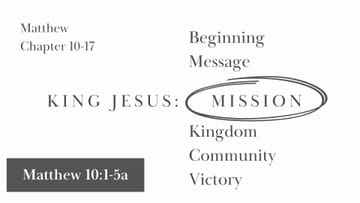Question: There are so many different translations of the Bible? Which one should I be reading?
Answer: It depends.
Someone once asked Billy Graham what was the best Bible translation out there. His reply was, "The one you will read."
While there is a balance to what Billy said, the basic idea is accurate. The Bible was originally written in Hebrew, Greek, and Aramaic. Because of this, every English reader will have to read a translation of the Bible.
Let's discuss a few questions I get and then finish with what Bible translations are best to read.
📚 Why are there so many Bible translations?
There are so many translations because there are different goals in translating the Bible. The history and reasoning of translation is a fascinating study and would quickly go beyond the scope of what we are trying to do here. I highly recommend you learn more about how the Bible is translated to gain confidence in what you are reading. However, for what we are doing here, let's settle on the broad claim that all meaningful translations can be categorized into Word-for-Word, thought-for-thought, and paraphrase.
- Word-for-Word: Those who translate this way try to get the text as close to the original language as possible. They will translate the text word for word. The greatest challenge is that the original languages are different from English. One of the significant differences is the way sentences are structured. Therefore, many of these translations end up with a very 'wooden' rendering, and the text can sound out of order or hard to read in English.
- Thought-for-Thought: This is also called "Dynamic Equivelance." This translation type aims to take the text one thought at a time and translate it accordingly. This may mean the text does not say the identical word-for-word, but it is easier to understand because it has been framed in a way that makes more sense to the English reader. The challenge with this is it requires a little more interpretation from the translator. This is why a committee is used for major translations. No translator comes to the text without some biases. Translating by committee helps minimize any of this making it into the text.
- Paraphrase: This type of translating is where the translator takes the overall text and says it in their own words. Their goal is to be faithful to the "spirit" and meaning of the text.
Hopefully, you can see why there are so many translations. When you place each translation within their perspective category, they are all very similar. There are only very slight differences between them.
📚 What is a Study Bible, and do I need one?
A Study Bible is a Bible where a publishing company will place study notes in the margins of a Bible to help clarify a particular area of study. One of the most popular Study Bibles out today is the Life Application Study Bible. This type of Study Bible aims to show how God's Word can be applied to everyday life.
I highly recommend acquiring a Study Bible sometime in your journey as a Christian. Here are some I recommend:
- New Life Application Study Bible
- The Apologetics Study Bible
- The NIV Study Bible
- The NET Study Bible
- The NLT Study Bible
- The ESV Study Bible
Are there any Bible translations I need to stay away from?
Yes. A general rule of thumb is to avoid anything that claims to be a translation of the Bible that a committee does not do. This is because committees provide oversight and checks and balances to ensure God's Word is handled with great care. This does not apply to paraphrases because they act almost as a commentary on the Bible and not a translation. Stay away from the following translations of the Bible:
- New World Translation. The LDS produced this translation. It has been changed from the original languages in certain places. They are unwilling to do so when asked to produce the Greek and Hebrew texts they translate.
- The Passion. This may be controversial because many like this "translation." If it were a paraphrase, I would have no issue with people reading it. However, one translator says he received his information from an angel rather than by translating the original texts. He also admits he does not know the original languages well. Many translators have said that "whatever-it-is" does not keep with sound scholarship and should not be read as Scripture. I would recommend you stay away from it.
Which Bible translation is best?
The best way to answer this question is with a question. What is your goal? As I stated above, there are various translations because of multiple destinations. Below is what I would recommend based on the purpose you are after.
A word-for-word translation: English Standard Version.
The ESV will help you get close to a word-for-word text translation. The downside is that it will sometimes sound very wooden and more challenging to understand. Also, realize it is impossible to be utterly word-for-word with any translation. Therefore, some wording will have to be translated as closely as possible.
A thought for thought translation: New English Translation, the New Living Translation, or the New International Version.
The NET, NLT, or NIV will do a great job of taking the thought the text is trying to convey and doing so in a modern context. I like the NLT because it has the most up-to-date scholarship and is on an 8th-grade reading level. This means most people will most widely understand it. It is also suitable for those to whom English is their second language.
A Paraphrase: The Message.
Eugene Peterson is the author of the Message paraphrase. He said his goal was not to provide a new translation of the Bible. He aimed to bring a fresh perspective to what people were already reading. Therefore, the Message paraphrase can be excellent for people trying to gain new insight into their Bible reading.
Once again, the best translation is the one you are willing to read consistently. So, let your primary focus be reading God's Word and allowing Him to lead you toward knowing Him more.
Resources
What is the Most Accurate Translation (GotQuestions.org)
The 5 Most Accurate Bible Translations (Faith Founded on Fact)
Which is the Best Bible Translation from the Bible Society
Which is Best to Read (Biblereasons.com)
Best Bible Translations (from logos.com)
Best Bible Translations and Teaching Resources (Grace Bible Church Blog)
What are the 5 Most Accurate Bible Translations (biblestudytools.com)



